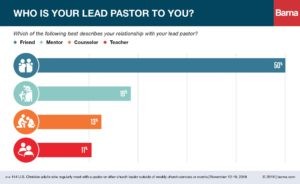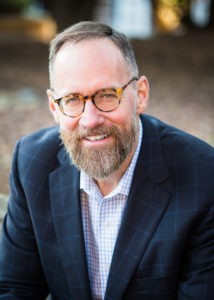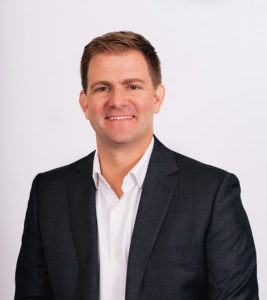Friendships with church members – in the BFF sense of the term – can be a dicey proposition for clergy.
And that lesson is one that many young ministers are figuring out for themselves.
“It’s about creating boundaries, which means on our day off we don’t take calls from congregants at all,” said Erica Whitaker, the senior pastor at Buechel Park Baptist Church in Louisville, Kentucky.

Erica Whitaker
“That’s how I see it in my generation of clergy,” said Whitaker who, at 31, is a Millennial.
But a recent Barna survey suggests many Christians are friends with their pastors.
A third of adults who have attended church at least once in six months said they interact regularly with their lead pastors outside church events, Barna reported. Among Christians who attended church within the last month, 43 percent said the same.
As many as 50 percent of them “call their pastor ‘friend.’”
‘Think it through professionally’
Even veteran pastors who have built friendships with church members say such relationships come with caveats.

Robert Creech
“I tell students that, even with friends in the congregation, there is always an equivocal relationship between pastors and those we serve – we are always their pastor,” said Robert Creech, professor of pastoral leadership at Baylor University’s Truett Theological Seminary.
That perspective is more than academic for Creech, 67, who pastored University Baptist Church in Houston for 22 years.
Ministers who serve one congregation that long are bound to develop friendships with members, especially if they are neighbors or have children close in age to their own.
“That’s a given,” Creech said.
But there are limits, he added. While they may be able to talk family and life with those friends, they should never discuss church politics or personnel matters.

“It’s never a relationship between two people on the same footing,” Creech said. “People look up to their pastor and when I walk into a hospital room, I’m not Robert their friend, I’m Robert their pastor.”
Arousing jealousy in the congregation is another potential pitfall of clergy-lay friendships, said Greg DeLoach, interim dean at Mercer University’s McAfee School of Theology.
“That’s a big problem,” he said.
Years ago, DeLoach said his family vacationed with a family from a congregation he was then serving as pastor. There were others it appeared to offend.

Greg DeLoach
“Some catty comments came back my way,” said DeLoach, 53.
The experience was a reminder that discretion is required when ministers and their families get close to people in their congregations.
DeLoach said he was taught in seminary to stay out of such relationships.
“There is still an essence of truth to that,” he said.
It also holds for social media.
“I don’t ever assume my Facebook presence is personal,” DeLoach said. “Whatever I post, I think it through professionally.”
‘That’s really difficult to do’
Drawing hard lines can be easier said than done, said Will Dyer, the senior pastor at First Baptist Church in Augusta, Georgia.
Dyer, 36, previously served as minister to young adults at another congregation, where he was given a sizable budget to socialize with potential and current members.

Will Dyer
“My M.O. has been: if I am talking about creating community, it’s pretty important that I am part of it in a truly invested sense,” he said.
But that model was challenged when Dyer arrived in Augusta, where the congregation numbers about 850 in worship and 3,700 on the books.
There aren’t enough hours in the day, evening or weekends to be present to everyone, he said.
Dyer added he is a committed father and husband, which requires him to mark out family time. When at work, Dyer said he is all-in. When he’s not at work, it’s about his wife and children.
It was something Dyer said he brought up during contract negotiations.
“I’m not on call on the weekends and you won’t be getting in touch with me,” he said.
“The search committee respected that.”
Such arrangements prevent or minimize clergy burnout, Whitaker said.
“To some it looks like compartmentalization, but to me it’s practicing sabbath – suspending our role as pastor if only for brief periods of time,” she said.
The benefits of boundaries go both ways, she explained.
Avoiding close friendships with clergy may prevent church members from becoming overly defensive when ministers and their decisions are opposed or criticized, she said.
Pastors also need to know that their social media activity can appear as favoritism. It can easily happen when a minister wishes one person, but not another, a happy birthday on Facebook.
“Millennial clergy are drawing harder boundaries because of social media,” she said.
It all amounts to self-care in the interest of both congregations and pastors.
“It’s about sanity,” Whitaker said.
“It’s about how can we have small pockets in our pastoral careers where we can be just be a person?” she said.
“That’s really difficult to do.”
